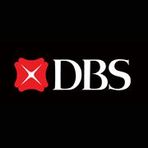Singapore's Banking Landscape: A Tale of Resilience and Change
November 8, 2024, 11:35 pm
In the bustling financial hub of Singapore, the banking sector is a vibrant tapestry woven with threads of competition, innovation, and adaptation. Recent reports from two of the nation's largest banks, OCBC and DBS, highlight this dynamic landscape. Both institutions have navigated the choppy waters of the global economy, yet their paths diverge as they look toward the future.
OCBC, the second-largest lender in Southeast Asia, recently announced a third-quarter net profit of S$1.97 billion (US$1.49 billion). This figure marks a 9% increase from the previous year, surpassing analysts' expectations. The bank's performance is a testament to its strategic focus on wealth management and insurance. These sectors have become the lifeblood of OCBC, driving fee and trading income higher.
However, not all is smooth sailing. The net interest margin, a critical indicator of a bank's profitability, dipped to 2.18% from 2.27% a year earlier. This trend mirrors the challenges faced by its competitors, DBS and UOB. Yet, OCBC's return on equity rose slightly to 14.1%, indicating a steady hand at the helm.
On the other side of the financial spectrum, DBS Group has made waves with its record third-quarter net profit of S$3.03 billion (US$2.27 billion). This 15% surge is a clear signal of the bank's robust health. It outperformed expectations, leaving analysts pleasantly surprised. Yet, a shadow looms over this success. The introduction of a global minimum corporate tax rate in 2025 could dampen future profits.
DBS's leadership transition adds another layer of intrigue. As Piyush Gupta prepares to step down, the banking community watches closely. His successor, Tan Su Shan, faces the challenge of maintaining momentum in a rapidly changing environment.
Both banks are grappling with the same underlying issues: rising interest rates and evolving regulatory landscapes. The global economy is a shifting sand dune, and banks must adapt or risk being buried.
OCBC's strategy of diversifying income streams has proven effective. Wealth management is no longer a luxury; it’s a necessity. As clients seek to grow their assets, banks that offer tailored solutions will thrive. OCBC's focus on this sector has paid off, allowing it to weather the storm of declining interest margins.
Meanwhile, DBS's strong performance is a double-edged sword. While the current results are impressive, the looming tax changes could slice into future profits. The bank's leadership must navigate these waters carefully. Strategic foresight will be crucial.
The competition between OCBC and DBS is fierce. Each bank is vying for a larger slice of the pie. They are not just competing for customers; they are competing for innovation. Digital banking is the new frontier. The banks that harness technology effectively will emerge as leaders.
UOB, the third player in this trio, is also making strides. Its recent results indicate a positive trajectory, with better loan growth anticipated in 2025. The bank is positioning itself to capitalize on the opportunities that arise from the evolving market.
As Singapore's banks look ahead, they must remain vigilant. The global economic landscape is fraught with uncertainty. Geopolitical tensions, inflationary pressures, and regulatory changes are all factors that could impact profitability.
Yet, there is a silver lining. The resilience of Singapore's banking sector is commendable. These institutions have weathered storms before. They have shown an ability to adapt and innovate. This adaptability is their greatest strength.
In conclusion, Singapore's banking landscape is a complex interplay of competition, innovation, and resilience. OCBC and DBS are at the forefront of this evolution. Each bank has its strengths and challenges. As they navigate the future, their ability to adapt will determine their success. The road ahead may be uncertain, but one thing is clear: Singapore's banks are ready to face the challenges head-on. They are not just surviving; they are thriving.
In this ever-changing environment, the only constant is change itself. And in the world of finance, those who embrace change will lead the way. The future of Singapore's banking sector is bright, and the journey is just beginning.
OCBC, the second-largest lender in Southeast Asia, recently announced a third-quarter net profit of S$1.97 billion (US$1.49 billion). This figure marks a 9% increase from the previous year, surpassing analysts' expectations. The bank's performance is a testament to its strategic focus on wealth management and insurance. These sectors have become the lifeblood of OCBC, driving fee and trading income higher.
However, not all is smooth sailing. The net interest margin, a critical indicator of a bank's profitability, dipped to 2.18% from 2.27% a year earlier. This trend mirrors the challenges faced by its competitors, DBS and UOB. Yet, OCBC's return on equity rose slightly to 14.1%, indicating a steady hand at the helm.
On the other side of the financial spectrum, DBS Group has made waves with its record third-quarter net profit of S$3.03 billion (US$2.27 billion). This 15% surge is a clear signal of the bank's robust health. It outperformed expectations, leaving analysts pleasantly surprised. Yet, a shadow looms over this success. The introduction of a global minimum corporate tax rate in 2025 could dampen future profits.
DBS's leadership transition adds another layer of intrigue. As Piyush Gupta prepares to step down, the banking community watches closely. His successor, Tan Su Shan, faces the challenge of maintaining momentum in a rapidly changing environment.
Both banks are grappling with the same underlying issues: rising interest rates and evolving regulatory landscapes. The global economy is a shifting sand dune, and banks must adapt or risk being buried.
OCBC's strategy of diversifying income streams has proven effective. Wealth management is no longer a luxury; it’s a necessity. As clients seek to grow their assets, banks that offer tailored solutions will thrive. OCBC's focus on this sector has paid off, allowing it to weather the storm of declining interest margins.
Meanwhile, DBS's strong performance is a double-edged sword. While the current results are impressive, the looming tax changes could slice into future profits. The bank's leadership must navigate these waters carefully. Strategic foresight will be crucial.
The competition between OCBC and DBS is fierce. Each bank is vying for a larger slice of the pie. They are not just competing for customers; they are competing for innovation. Digital banking is the new frontier. The banks that harness technology effectively will emerge as leaders.
UOB, the third player in this trio, is also making strides. Its recent results indicate a positive trajectory, with better loan growth anticipated in 2025. The bank is positioning itself to capitalize on the opportunities that arise from the evolving market.
As Singapore's banks look ahead, they must remain vigilant. The global economic landscape is fraught with uncertainty. Geopolitical tensions, inflationary pressures, and regulatory changes are all factors that could impact profitability.
Yet, there is a silver lining. The resilience of Singapore's banking sector is commendable. These institutions have weathered storms before. They have shown an ability to adapt and innovate. This adaptability is their greatest strength.
In conclusion, Singapore's banking landscape is a complex interplay of competition, innovation, and resilience. OCBC and DBS are at the forefront of this evolution. Each bank has its strengths and challenges. As they navigate the future, their ability to adapt will determine their success. The road ahead may be uncertain, but one thing is clear: Singapore's banks are ready to face the challenges head-on. They are not just surviving; they are thriving.
In this ever-changing environment, the only constant is change itself. And in the world of finance, those who embrace change will lead the way. The future of Singapore's banking sector is bright, and the journey is just beginning.

